AJC.com: Chuck Leavell and his songs from the wood
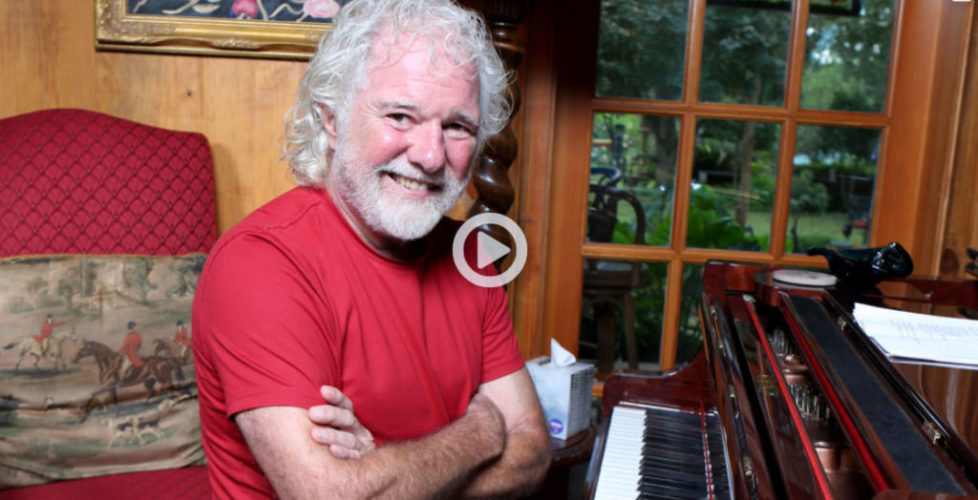
BULLARD — He’s often the guy perched behind Mick Jagger on stage, a keyboard altar at his fingertips as he leads The Rolling Stones through their Bible of hits in his role as the band’s musical director.
Other times, he’s ensconced in a studio, maybe adding a dab of piano to an Allman Betts Band song, working on albums with John Mayer or just dropping by the newly revived Capricorn Sound Studios in Macon to offer good wishes to Blackberry Smoke.
But on most days, Chuck Leavell isn’t a rock star, even though his enviable silver mane and crinkled-eyed smile always present an aura of understated cool.
Most days, the man who helped dictate the sound of The Allman Brothers Band in their 1970s heyday is up before dawn. There might be a tree that needs to come down and loaded onto a truck and driven to a sawmill a few miles down the road that his brother-in-law runs. Depending upon the season, it could be time to plant feed plots for wildlife.
That’s Leavell’s other life on Charlane Plantation, the 4,000-acre tree farm outside of Macon where he lives with Rose Lane, his beloved wife of 47 years, as well as a quartet of horses and a pair of gregarious German Shorthaired Pointers, Babe and Flo.
The contrast between performing in front of tens of thousands of people from Paris to Tokyo to Melbourne to Atlanta and the quietude of Charlane — its name a combination of Leavell’s birth name, Charles, and his wife’s — is something he relishes.
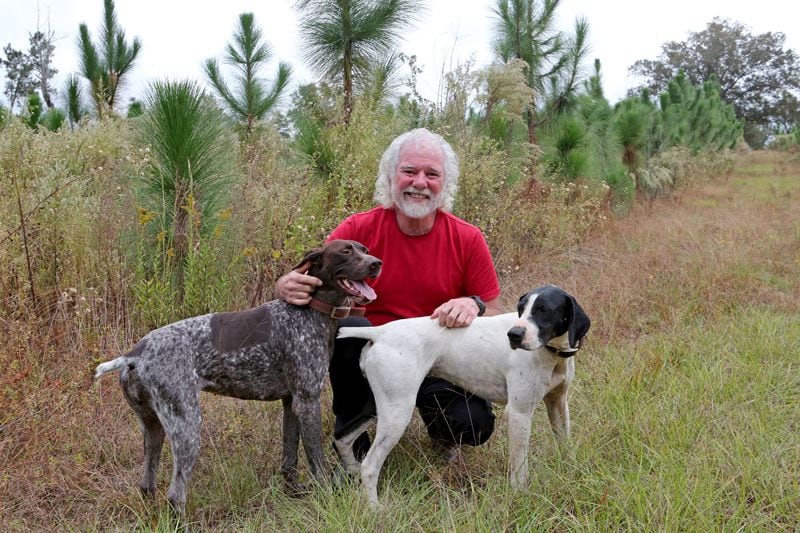
“Do I like it? No, I love it,” he said with one of his warm smiles about returning from the turbo-charged pace of touring to a world of wind chimes and bird chirps. “It helps keep me sane and keep me grounded. It helps keep priorities in order. There’s a lot of physical work here and that keeps me in shape. It’s a blessing to get off that road and not hear the traffic and the sound of, well, God bless ‘em, screaming fans and all of that electric atmosphere when you’re touring. When you get off that and you come here and hear the sound of the wind in the pines and the crunch of leaves underfoot, that’s a good thing.”
Leavell’s dueling lifestyle is unique, making it ripe for exploration in the documentary, “Chuck Leavell: The Tree Man.” Released earlier this month for a limited run in theaters nationwide, the film, which nabbed the 2020 Sedona Film Festival’s People’s Choice Award, will arrive on video on demand Dec. 1.
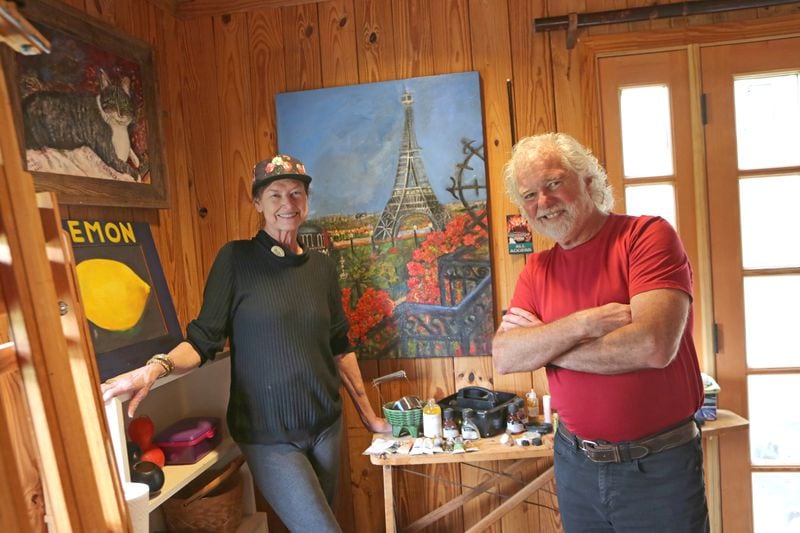
The 3 ½-year undertaking with director Allen Farst keys in on three core aspects of Leavell’s life: music, the environment and his love story with Rose Lane, his stylish spouse and travel partner who reveals her creativity in the art studio built above Charlane’s horse barn.
“It’s a story that needs to be told,” said Farst. “Chuck is one of the best piano players of the past 40 years who flies under the radar to the masses. The life he’s living on Charlane, the people in the environmental world know about that, but the public doesn’t. Here’s a celebrity not just talking about saving the planet, but actually doing it. When you look at that and being married to Rose Lane for 47 years, who he met when he walked into Capricorn Records in the ’70s (she was a secretary for Capricorn co-founder Frank Fenter), that’s something special.”
The birth of a tree man
Down a long, pale dirt road filled with bumps and crevices in the middle of farm country in Bullard, sits a two-story white house with a green roof.
Inside, the cluttered coziness — glistening peacock statues, vibrant artwork, satin couch pillows, a piano, of course — is corralled by wooden walls built from trees on the land.
The history of the Twiggs County home dates back to 1850 — the Bullard House on the property stretches to 1835 — and it, along with a then-smaller parcel of land, belonged to Rose Lane’s family. (Her grandfather and father were involved in the forest industry in Georgia beginning in 1922.)
When Leavell, an Alabama native, met Rose Lane at the record label office in 1969 and eventually asked her on a date in 1972 — shortly after joining The Allman Brothers Band for their “Brothers and Sisters” album — he was instantly smitten; within six months the couple planned to marry. But first came a meeting with the family.
“A relative we call Baby Joe — who is a big guy — told Mr. Al, Rose Lane’s daddy, that ‘Rose is bringing this boy out here, and he plays in a band, and it’s not a country band. But apparently, they’re getting pretty tight, so I don’t want you making fun of them.’ I learned that they were farmers, and they welcomed me with open arms. From the process of coming out here on weekends and holidays, I got it. I got their ethic of stewardship and hard work,” Leavell said.
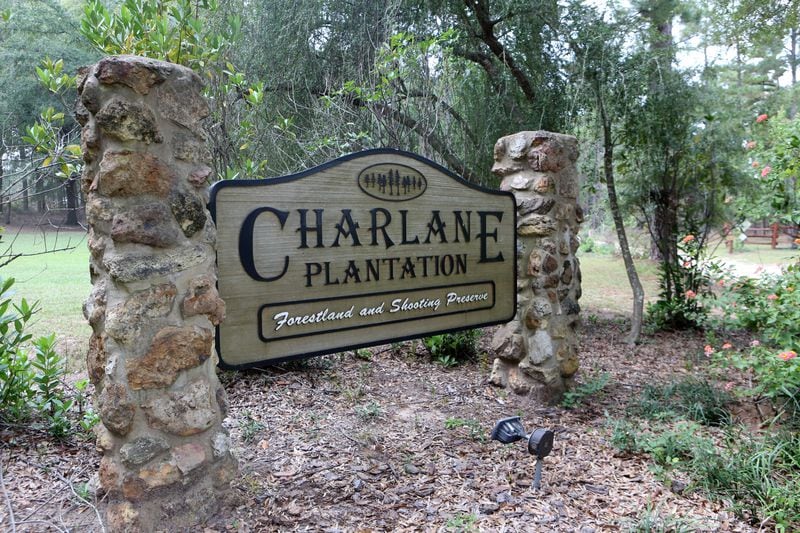
In 1981, Rose Lane’s grandmother died, leaving the house and land to Rose Lane and her brother.
“When she died, it was on our shoulders, and that was a huge change. It was family land. We had to keep it and wanted to keep it,” Leavell said.
Rose Lane’s brother, Alton White — who owns the aforementioned sawmill not far from Charlane — suggested that Leavell and his sister plant pine and hardwood trees, a symbiotic choice as Leavell would soon appreciate.
“I started to realize the connection between music and wood with instruments and that gave me something to think about,” Leavell said. “That’s a good thing to do —long-term sustainable forestry — and then you begin to think of all the things wood gives us.”
As part of his early-morning rituals, Leavell, 68, scours the land to seek out any trees that might have been struck by lightning, lost to insects or died naturally. All of the pasture fencing is from wood that was dead or dying, as is the 5,500-square-foot lodge used for guests and quail hunting clients.
“I try to take (the trees) down and use the lumber. I hate to see it go to waste,” he said, then paused and grinned. “But you need to leave some for the woodpeckers.”
Leavell’s interest in environmental causes was also channeled into the Mother Nature Network, which he co-founded with Atlanta advertising exec Joel Babbitt a decade ago. Earlier this year, MNN and sister sustainability site Treehugger were bought by New York-based media giant Interactive Corp.; the company opted to incorporate the two sites and dropped the MNN name. Leavell, however, remains an ambassador/consultant for Treehugger and also hosts the PBS series, “America’s Forests with Chuck Leavell.”
Leavell’s commitment to forestry and sustainability earned him and Rose Lane the National Outstanding Tree Farmers of the Year award in 1999 from the American Tree Farm System, an arduous selection process that includes visits from the voting board to inspect and walk the land.
But it’s also his steadfastness in regular maintenance of the property — two full-time workers and several part-timers aid Leavell depending upon the season — that impresses those who are immersed in forestry.
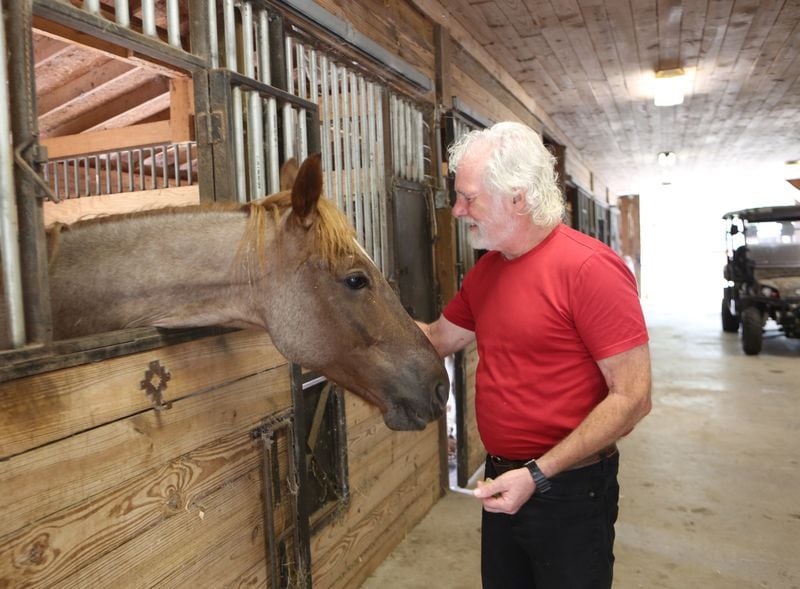
Bob Izlar, University of Georgia’s director of the Langdale Center for Forest Business and the Warnell School of Forestry and Natural Resources, has known Leavell since the mid-’80s, when the musician was in his learning phase at Charlane.
Leavell sought out Izlar because he wanted to get involved in the tree farm system, and they’ve been friends ever since. Izlar also served as the fact-checker for Leavell’s 2001 book, “Forever Green: The History and Hope of the American Forest.”
“Even if it’s in his music, Chuck is always experimenting with new ways to do things, new techniques,” Izlar said. “He’s actually quadrupled the number of acres they have. He’s put in bird courses. They do field trials out there. They run a business with quail hunting that brings in people from around the world…It’s always been so impressive to see his stage presence. You can see it at a Stones concert, but when you see him talking about something with such passion that you don’t expect him to talk about, like, let me tell you about how I burn my woods off in the wintertime, you know you’re listening to an expert.
“The unusual part about Chuck is that he’s not an absentee landowner. He lives on it. He sees it every day. He watches the changes that happen. He’s got this rock ‘n’ roll career, but he’s completely tied to the land.”
A legacy on film
In the opening shot of “The Tree Man,” Leavell is seated behind a black grand piano placed amid the towering trees at Charlane.
A swooping, overhead crane shot — commissioned by director Farst — pulls back to showcase the scope of the land as The Rolling Stones’ “Sympathy for the Devil” plays in the background.
It’s an ideal visual statement that situates Leavell in his two worlds and should remind viewers about his musical history, which unfolds with the heft of “War and Peace.”
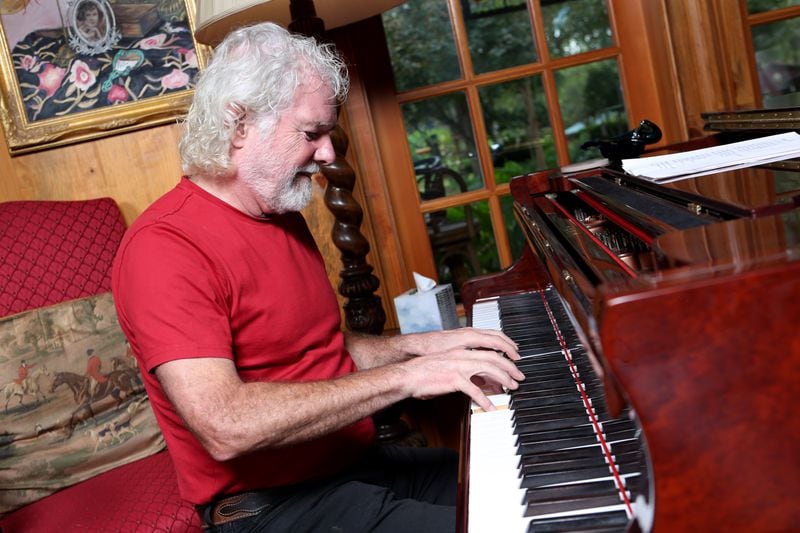
At 15, he played on Freddie North’s soul classic, “Don’t Take Her, She’s All I’ve Got,” recorded at the famed Muscle Shoals Sound Studios in Alabama. After moving to Macon in 1969, Leavell hit studios and stages with artists ranging from Dr. John to Kitty Wells to the Marshall Tucker Band before joining The Allman Brothers Band in 1972.
Their breakup later that decade prompted Leavell to form his own band, the rock-blues-fusion outfit Sea Level, with ABB drummer Jaimoe.
After a few more years, in the summer of 1982, The Rolling Stones hired Leavell as their primary keyboardist.
“Chuck Leavell sort of mounted into the band; it wasn’t so much joining,” says iconic Stones guitarist Keith Richards in the documentary.
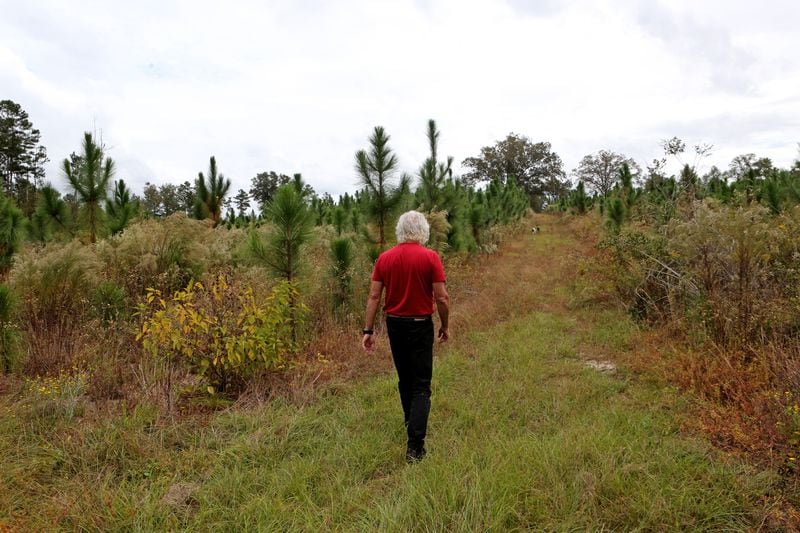
Along with his steady gig recording and touring with one of rock’s greatest monoliths, the prolific musician’s name has appeared on scores of albums and songs. Among his bona fides, you’ll hear his keyboard and piano playing on The Black Crowes’ “Shake Your Moneymaker”; on Train’s massive 2001 hit, “Drops of Jupiter (Tell Me)”; on Eric Clapton’s landmark 1993 “Unplugged,” which won six Grammy Awards and became the bestselling live album of all time; and more recently, on John Mayer’s “Born and Raised” (2012) and “Paradise Valley” (2013) releases and David Gilmour’s lush “Live in Pompeii” recording. (Leavell also sings co-lead vocals on “Comfortably Numb,” a spectacular inclusion in the film.)
For the documentary, Leavell took a deep breath and asked about 80 of his contemporaries with whom he’s worked to participate.
“I surely thought someone would say, ‘I’m sorry, I’m busy,’ and believe me, I gave them the disclaimer that if you’re not into this or you don’t have time, I understand,” Leavell said. “But without exception, they all agreed and were so gracious. I’ll be forever grateful for that.”
Indeed, interspersed with postcard-worthy footage of Leavell and Rose Lane in Paris, concert scenes with The Rolling Stones and homey moments at Charlane, are declarations from a horde of artists — from Clapton to Gilmour to Eric Church to Paul Shaffer to Bonnie Raitt — about Leavell’s sustained musical prowess and general goodness as a person and environmentalist.
Even former president Jimmy Carter makes a cameo.
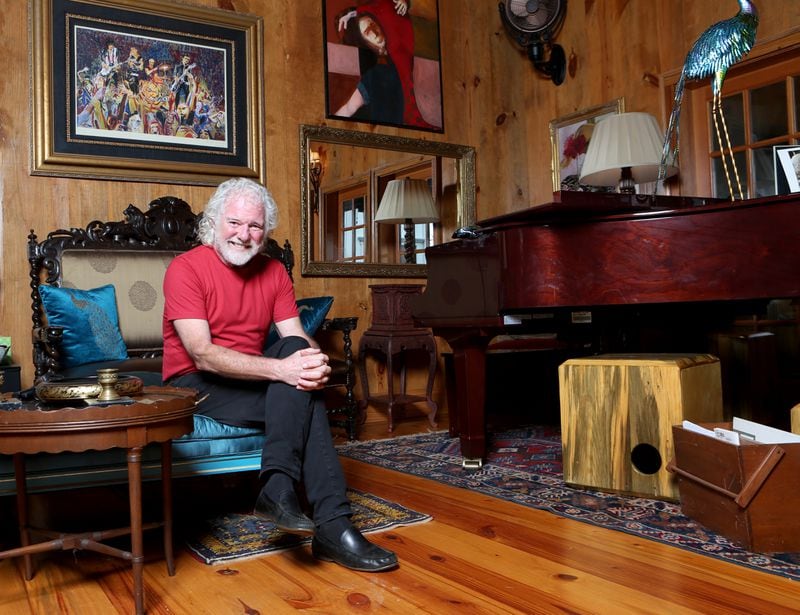
Leavell admits to being “totally flattered and totally embarrassed” by the kind words of his peers, which he didn’t hear until Farst showed him the first cut of the documentary. But most importantly for him, “The Tree Man” will exist as a historical document for his family — daughters Amy and Ashley, his sons-in-law and four grandchildren.
Farst, meanwhile, is pleased that the finished film illuminates the many facets of Leavell — some that many fans will learn about for the first time.
“Chuck is a special human being. He’s one in a billion. Because of that, I felt I needed to make a documentary that was equal to what I think that guy is worth,” Farst said. “He’s lived the life. He’s treated everyone kind along the way, and he’s made some of the best music we listen to every day on the radio. You know what, dude? You deserve everything you’ve got.”
PHOTOS > Credit: Tyson Horne / tyson.horne@ajc.com
